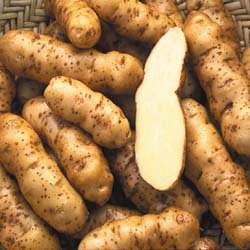Slow Food Seattle School Garden Meeting April 22
Healthy eating habits and finding joy in good food and cooking start early in life! Slow Food believes this, and so one of our major programs is working to help establish and maintain school gardens.
If this is an element of Slow Food that appeals to you, come learn more at Slow Food Seattle School Garden committee's next meeting on April 22. Here is the event info:
Our next Slow Food Seattle school garden meeting will be Tuesday, April 22 from 4:30 to 6 P.M. Come with an appetite as Chipotle has offered to supply us with food! We are excited to be meeting at the Seattle Children's Playgarden.
From the garden's web site:
All children deserve these simple pleasures. The Seattle Children's PlayGarden is a space where children of all abilities can play outdoors and stretch their imaginations and independence: kids on two feet, kids with walkers, kids in wheelchairs, kids who communicate differently. A welcoming place where children with special needs can play along side their typically developing siblings and friends
If you haven't been to the garden before you are in for a treat. Among other topics on the agenda Liz Bullard, the executive director, will talk to us about the garden and tour us around. The Seattle Children's Playgarden is located at the south end of Colman Playfield near the I-90 lid at 1745 24th Avenue South (between S. Grand and S. Massachusetts). Look for the topiary!
Slow Food Seattle will also be handing out Makah Ozette seed potatoes to grow as part of your gardening program with kids. Along with the potatoes will come some lessons plans tied to the Common Core Standards and some Washington State history tie-ins as well. Here's the basic information on this unique potato:
All potatoes originated in South America and it was thought that all potatoes now in the Americas were first taken to Europe by Spaniards before they came to the Americas with the European colonization. However in 2004 phylogenetic analysis conducted at Washington State University showed evidence that the Makah Ozette potato was certain to have been imported directly from South America. How did this happen?
After their conquests in South America the Spanish began a mission to further establish their empire on the western shores of North America. In the spring of 1791 they established a fort at Neah Bay and as accustomed a garden was planted that surely included potatoes they brought directly from South America or Mexico. Over the winter of 1791 the Spanish found the severe weather conditions at the forts harbor was unsafe for moorage of their vessels. The Spanish abandoned the fort in the spring of 1792.
The Makah people, who were in need of a carbohydrate source either traded or found volunteers of this rather weedy plant left in the garden of the abandoned fort. They quickly adopted the potato and became its stewards, growing it in their backyard gardens for over 200 years. Not until the late 1980’s was this potato catalogued and seed was grown outside the Makah Nation. There has to date been very limited commercial production of this potato although it is noted to be grown by a few small farmers in several regions of the U.S.A .
Slow Food U.S.A. has made the Ozette Makah Potato a member of its Ark of Taste in order to preserve this unique heritage potato.
Also on the agenda will be:
Resources available that tie school garden lessons to the Common Core.
Sharing spring fundraising ideas for your gardens.
Seattle school garden networking ideas.
We hope to see you there!
Philip Lee and Rick Swann


